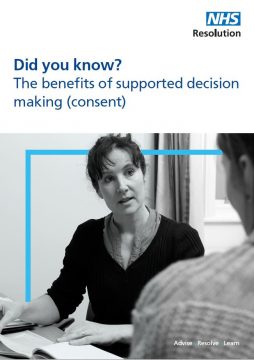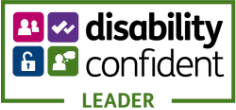Consent
Supporting decision making (consent) is a vital part of patient care.
Consent claims often centre on the information, or insufficient information, provided to patients to make informed decisions about their healthcare. Supported decision making ensures that risks are not omitted (including the risk that treatment may not achieve its intended aims) and imbalanced information, directing patients towards a particular treatment choice, all fall under consent.
Between 1 April 2014 – 31 March 2019 there were 1,194 claims for a failure to adequately consent at a cost to the NHS of £202 million. Consent claims occur across all specialities, but are more prevalent in surgical specialities and obstetrics and gynaecology with more than 50% of the consent claims managed by NHS Resolution relating to orthopaedic surgery and gynaecology.
This module contains 4 learning resources.

Video
Watch consent – legal context
Health Lawyer Ian Long provides legal context on the theme of consent.
Faculty of Learning resource

Video
Watch Nadine’s story – consent (part two)
Nadine Montgomery presents her story that led to the landmark ruling on consent (Montgomery v Lanarkshire Health Board [2015]).
Faculty of Learning resource

Video
Watch an introduction to Nadine’s story (part one)
Tim Shurlock, NHS Resolution, shares an introduction to consent claims and Nadine’s landmark ruling on consent.
Faculty of Learning resource

Leaflet
Read the benefits of supported decision making (consent)
This leaflet provides context for claims cases, the importance of Nadine’s story and what patient-centred consent looks like.
Faculty of Learning resource






